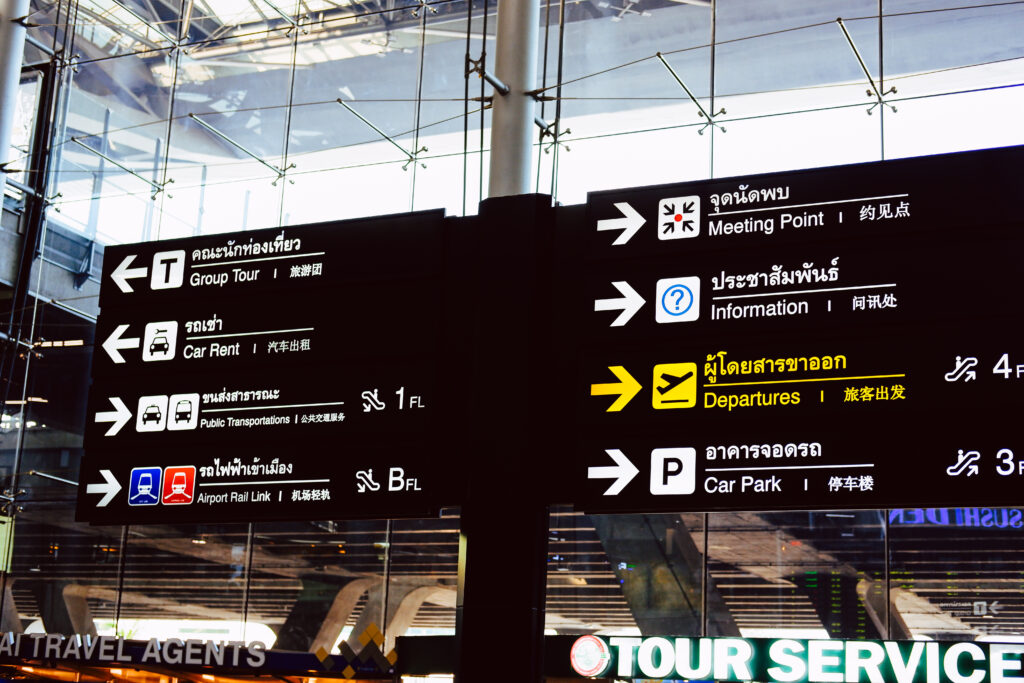
novellarounds
About novellarounds
Chasing Jackpots and Chicken Dinners: A Deep Dive into the World of Casino Road

Chasing Jackpots and Chicken Dinners: A Deep Dive into the World of Casino Road
Casino Road. The name itself conjures images of flashing lights, the clatter of chips, and the electric hum of anticipation. Located in Everett, Washington, just north of Seattle, Casino Road isn’t just a street; it’s a vibrant, complex ecosystem where the allure of instant riches intersects with the everyday realities of a diverse community. While the name might lead you to believe it’s lined with opulent casinos like the Las Vegas Strip, the reality is far more nuanced. This article delves into the multifaceted nature of Casino Road, exploring its gambling scene, its cultural tapestry, and its ongoing evolution.

The Gambling Landscape: Beyond the Glitz and Glamour
While massive resort-style casinos are absent, Casino Road thrives as a hub for smaller gambling establishments. Card rooms, often attached to restaurants and bars, are prevalent, offering games like poker, blackjack, and pai gow. These establishments provide a more intimate and localized gambling experience compared to the sprawling casinos found elsewhere. The atmosphere is often less formal, catering to a regular clientele seeking a night of entertainment and the potential for a lucky win.

However, this localized gambling scene also presents challenges. Concerns about responsible gaming, potential for problem gambling, and the regulation of these smaller establishments are constant considerations for the community and local authorities. Unlike larger casinos with robust responsible gambling programs, these smaller venues may have fewer resources dedicated to addressing these issues.
Card Rooms: The Heart of Casino Road’s Gambling Scene
Card rooms are undoubtedly the most prominent form of gambling along Casino Road. They offer a variety of table games, attracting both seasoned players and casual gamblers. The games typically played include:
- Poker: Texas Hold’em, Omaha, and other variations are popular choices.
- Blackjack: A classic casino game where players aim to beat the dealer’s hand.
- Pai Gow: A Chinese gambling game played with dominoes.
The stakes in these card rooms can vary significantly, catering to different budgets. Some rooms offer low-stakes games, allowing newcomers to learn the ropes without risking large sums of money. Others cater to high rollers, with tables featuring substantial minimum bets and the potential for significant payouts. The social aspect of these card rooms is also a major draw, with players often developing camaraderie and enjoying the shared experience of gambling.
Regulation and Responsible Gaming: Navigating the Challenges
The Washington State Gambling Commission plays a crucial role in regulating gambling activities along Casino Road. They issue licenses to card rooms, conduct inspections, and enforce regulations related to responsible gaming. This includes measures such as age verification, limits on betting amounts, and requirements for displaying information about problem gambling resources.
However, challenges remain in ensuring effective regulation and promoting responsible gaming practices in these smaller establishments. Limited resources, language barriers, and the transient nature of some patrons can make it difficult to reach everyone with important information about the risks of gambling. Community organizations and local advocacy groups are actively working to address these challenges and provide support to individuals and families affected by problem gambling.
A Cultural Mosaic: The Diverse Community of Casino Road
Casino Road is more than just a place to gamble; it’s a vibrant and diverse community. The area is home to a large immigrant population, representing a wide range of cultures and ethnicities. This diversity is reflected in the businesses, restaurants, and community organizations that line the street. From authentic ethnic restaurants to cultural centers, Casino Road offers a rich tapestry of experiences for residents and visitors alike.
However, this diversity also presents unique challenges. Language barriers, cultural differences, and economic disparities can create obstacles to accessing essential services and participating fully in the community. Organizations like the Refugee and Immigrant Family Center (RIFC) and other local nonprofits play a vital role in providing support, resources, and advocacy for the diverse populations along Casino Road.
Ethnic Enclaves: A Taste of the World on One Street
One of the defining features of Casino Road is the presence of numerous ethnic enclaves, each offering a unique cultural experience. Visitors can find authentic cuisine from around the world, including:
| Cuisine | Examples |
|---|---|
| Mexican | Tacos, enchiladas, burritos, and other traditional dishes. |
| Vietnamese | Pho, banh mi, spring rolls, and other Southeast Asian specialties. |
| Korean | Kimchi, bibimbap, Korean BBQ and other popular choices. |
| Salvadoran | Pupusas, tamales, and other Central American favorites. |
These ethnic restaurants not only provide delicious food but also serve as gathering places for communities, fostering a sense of belonging and preserving cultural traditions. The vibrant atmosphere and authentic flavors of these establishments make Casino Road a culinary destination for those seeking a taste of the world.
Community Organizations: Supporting a Diverse Population
Numerous community organizations are dedicated to supporting the diverse populations along Casino Road. These organizations provide a wide range of services, including:
- Language classes: Helping immigrants learn English and navigate daily life.
- Job training: Providing skills and resources to find employment.
- Legal assistance: Offering guidance and representation on immigration and other legal matters.
- Health services: Providing access to healthcare and health education.
- Youth programs: Supporting children and teens through educational and recreational activities.
These organizations play demo version (https://chicken-road-365.com/) a vital role in empowering residents, promoting social integration, and addressing the challenges faced by vulnerable populations. They serve as a lifeline for many individuals and families, providing essential support and fostering a sense of community.
Economic Realities: Challenges and Opportunities
Casino Road faces significant economic challenges. High poverty rates, unemployment, and a lack of affordable housing are persistent issues. Many residents work in low-wage jobs, struggling to make ends meet. The area has also faced challenges related to crime and safety, further impacting the quality of life for residents.
However, Casino Road also possesses significant economic potential. Its diverse community, strategic location, and entrepreneurial spirit create opportunities for growth and development. Efforts to revitalize the area, attract new businesses, and improve infrastructure are underway, aiming to create a more prosperous and equitable future for the community.
Poverty and Housing: Addressing Fundamental Needs
Poverty and a lack of affordable housing are two of the most pressing challenges facing Casino Road. Many residents struggle to afford basic necessities, including food, clothing, and shelter. Overcrowding and substandard housing conditions are also common.
Local organizations and government agencies are working to address these issues through a variety of initiatives, including:
- Affordable housing development: Building new affordable housing units and preserving existing ones.
- Rental assistance programs: Providing financial assistance to help low-income families pay their rent.
- Food banks and meal programs: Providing food assistance to individuals and families in need.
- Job creation initiatives: Creating employment opportunities and providing job training to help residents find work.
Addressing these fundamental needs is essential for improving the quality of life for residents and creating a more stable and thriving community.
Revitalization Efforts: Investing in the Future
Efforts to revitalize Casino Road are focused on improving the area’s infrastructure, attracting new businesses, and creating a more welcoming and vibrant environment. These initiatives include:
- Streetscape improvements: Enhancing sidewalks, lighting, and landscaping to create a more pedestrian-friendly environment.
- Business development programs: Providing support and resources to help local businesses thrive.
- Community events and festivals: Promoting cultural events and festivals to attract visitors and celebrate the community’s diversity.
- Public safety initiatives: Improving public safety through increased police presence, community policing programs, and crime prevention efforts.
These revitalization efforts aim to transform Casino Road into a more attractive and prosperous destination, benefiting both residents and visitors.
The Future of Casino Road: Balancing Growth and Community
The future of Casino Road hinges on finding a balance between economic growth and preserving the community’s unique character. Attracting new businesses and investments is important, but it’s also crucial to ensure that these developments benefit existing residents and don’t displace them. Maintaining affordability, protecting cultural diversity, and addressing social challenges will be key to creating a sustainable and equitable future for Casino Road.
Community engagement and collaboration are essential for shaping the future of Casino Road. By working together, residents, businesses, and community organizations can create a vision for the area that reflects their shared values and aspirations.
Community Engagement: Shaping the Future Together
Engaging residents in the planning and development process is crucial for ensuring that revitalization efforts benefit the entire community. This can be achieved through:
- Community meetings and forums: Providing opportunities for residents to voice their opinions and concerns.
- Neighborhood surveys: Gathering input from residents on their priorities and needs.
- Community advisory boards: Establishing advisory boards to provide ongoing guidance on development projects.
- Participatory budgeting: Allowing residents to decide how public funds are spent in their neighborhood.
By actively involving residents in the decision-making process, developers and government agencies can ensure that revitalization efforts are responsive to the community’s needs and priorities.
Sustainable Development: Creating a Thriving Community
Sustainable development practices are essential for creating a thriving community on Casino Road. This includes:
- Promoting energy efficiency: Encouraging the use of energy-efficient technologies and practices.
- Reducing waste: Implementing recycling and composting programs.
- Protecting natural resources: Preserving green spaces and promoting sustainable land use practices.
- Creating walkable and bikeable neighborhoods: Designing neighborhoods that are easy to navigate on foot or by bike.

By embracing sustainable development practices, Casino Road can create a more environmentally friendly and livable community for current and future generations.
Casino Road is a microcosm of the American experience, a place where dreams are chased, cultures collide, and communities strive for a better future. It’s a place of contrasts, where the allure of gambling intersects with the realities of poverty and the richness of diversity. As Casino Road continues to evolve, it will be crucial to prioritize community engagement, sustainable development, and equitable policies to ensure that its future is one of shared prosperity and opportunity for all.
No listing found.
